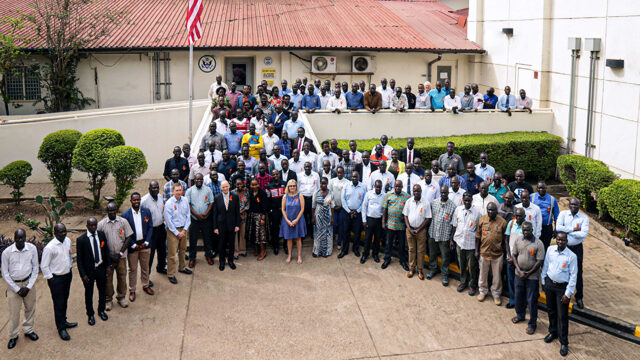
U.S. Embassy Juba, South Sudan
The United States recognized South Sudan as a sovereign, independent state on July 9, 2011, following its secession from Sudan. Several disputes between Sudan and South Sudan remain unresolved post-independence, including the demarcation of the border, the status and rights of the citizens of each country in the other, and the status of the Abyei region. Abuses against civilians, including appalling levels of sexual violence, have forced more than four million people to flee their homes and left seven million South Sudanese – over half the population – in need of humanitarian assistance in 2018. Prospects for peace are uncertain, as South Sudan’s government has shown a reluctance to end the fighting or to prioritize the needs of its citizens. The United States has been deeply involved in international efforts to end the conflict.
The U.S. government is the leading international donor to South Sudan and provides lifesaving humanitarian assistance such as food, nutrition, protection, clean water, and sanitation, as well as essential services such as food, nutrition support, emergency water and sanitation interventions, health care, and education to millions of South Sudanese citizens displaced or otherwise affected since the start of the crisis in December 2013. The U.S. government also supports civil society and independent media to ensure that diverse voices are heard, and supports activities in conflict mitigation, trauma awareness, and reconciliation. The United States has urged the international community to join in efforts to assist those affected by the ongoing violence.
Today the U.S. embassy is in Juba.
Map Link:
Source:
United States Department of State, Office of the Historian and Bureau of African Affairs
Social Links:
https://twitter.com/USMissionJuba/
https://www.facebook.com/USEmbassySouthSudan